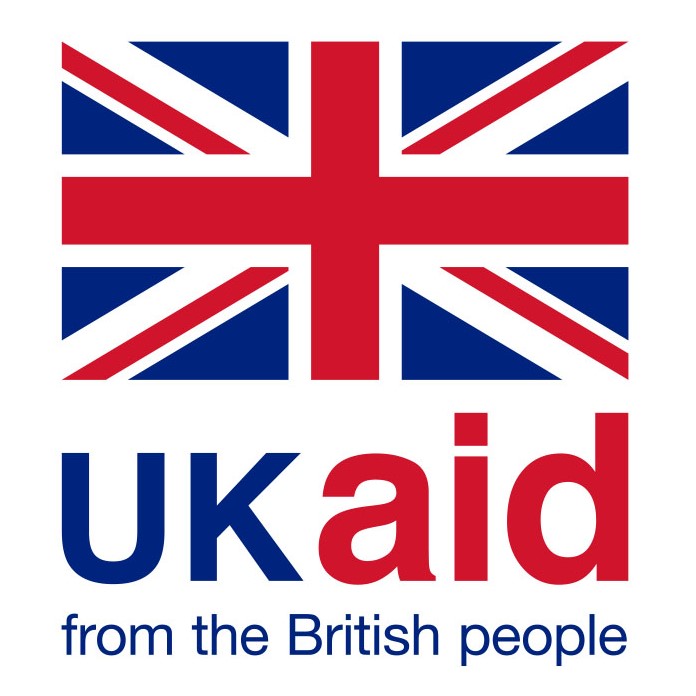Mercy Corps completes second phase of supporting Jordan’s healthcare system
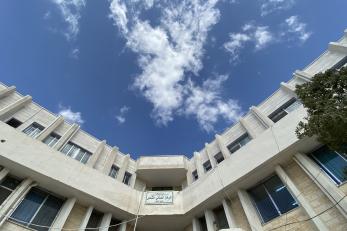
The COVID‑19 crisis has exposed inadequacies in Jordan's public health system, and the government's primary concern is avoiding a rapid increase in the number of infected people within a short period, to avoid an overwhelming burden on the healthcare facilities. However, strengthening the health care system's ability to respond quickly and effectively is equally as critical as containing and mitigating the spread of the virus.
As a consequence, Mercy Corps, as a part of the UKaid-funded Leadership and Community Development (LCD) program, has collaborated with the Ministry of Health and worked on identifying priorities that couldn’t be covered by the Ministry's 2020 annual budget plan due to re-allocations resulting from the COVID‑19 pandemic. Although these priorities were selected by the government, the program strongly involved community members most vulnerable to COVID‑19's impacts, such as women, youth, the elderly, and people with disabilities, to ensure community involvement and support.
The initial budget that was set for these priorities was 1.5 million Jordanian dinars, which included different types of support to 25 health centers and hospitals. But following the outbreak of the virus and the increasing demand for health centers and hospitals, Mercy Corps with the donor agreed to start the second phase of supporting the health sector in Jordan and has increased the budget for sustaining the health system to around 2 million Jordanian dinars, with a new target of supporting 47 health centers and hospitals across all Jordan’s governorates.
The second phase of the LCD program’s intervention in supporting the health sector in Jordan was classified into two categories:
Expansion and rehabilitation
As a result of the needs assessment conducted by Community Leaders through the National Network for Social Cohesion and Negotiation Skills, it was found that supporting the health sector in Zarqa city is a priority for the local community, as most of the health centers are overcrowded there, posing a threat to the people, particularly after the COVID‑19 pandemic. On the other hand, one of the Ministry of Health's priorities in Zarqa was to support Wadi Al-Hajar Health center, since the work required at this center would not be funded by the Ministry's budget in 2020. Accordingly, Mercy Corps has agreed with the Ministry of Health to allocate support to expand Wadi Al-Hajar health center and supply it with the essential medical equipment and furniture.
Furnishing and supplying medical and non-medical equipment
Since one of the priorities of the Ministry of Health for the years 2020-2021 was to adequately equip health centers and hospitals to better provide high-quality medical services, in the second phase of the intervention, the LCD program has increased the number of the supported health centers and hospitals from 25 to 47 which are distributed in all Jordan’s 12 governorates.
The support provided to many hospitals and health centers in meeting their needs for furniture and different medical equipment, has greatly aided medical personnel in providing high-quality, long-term health services, especially in the face of the coronavirus pandemic. Furniture included; wooden furniture, appliances, ACs, and curtains.
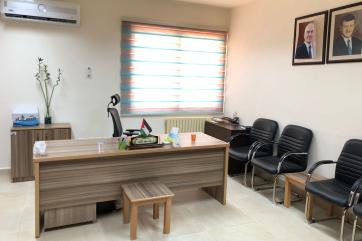
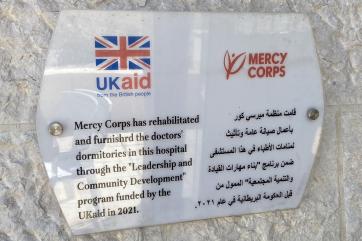
Despite the fact that medical equipment plays a vital role in hospitals and health centers, many health facilities in Jordan are under-equipped and running with minimal medical supplies, doctors are doing their best to provide the best care available, but this is often not enough.
While the Ministry is struggling to provide the needed equipment to hospitals that were under-equipped especially during the pandemic, Mercy Corps, through the LCD program, has provided 327 pieces of medical equipment to 17 health centers and hospitals with an approximate cost of 840 thousand Jordanian dinars, that equipment included; dialysis units, digital x-rays, dental units, dental lab equipment, blood drawing chairs, and other laboratory equipment and devices. The supplied equipment was selected based on the priorities of the Ministry and the needs of these centers and hospitals.
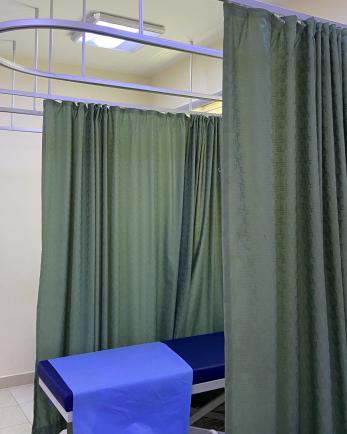
Besides to the aforementioned priorities, the program in the first phase of this intervention has also worked in two health centers conducting maintenance to improve the quality of services provided, and contribute to their durability and continuity, since infrastructure development and enhancement is considered a foundation for supporting the continuance and sustainability of health services, these health centers were Al Ashrafieh Health Center in Irbid and Southern Shuneh Health Center in Balqa.
And due to the importance of improving hospitals facilities and increasing hospitals’ readiness to combat the COVID‑19 pandemic, the LCD program has provided specialized facilities for doctors and medical personnel by implementing various rehabilitation and maintenance work for doctors’ residences in four different hospitals: Al Bashir Hospital in Amman, Karak Hospital in Al Karak, Maan Hospital in Maan, and Doctor Jameel Al Tutanji Hospital in Sahab.
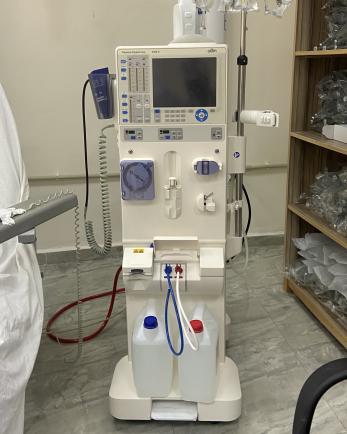
The importance of these projects lies in their positive influence on social cohesion and reducing tensions in the communities, also in increasing the ability of the Ministry of Health to respond to a wide range of medical requests, including those causatives of the COVID‑19 pandemic (either directly or indirectly due to lack of access to care).
The UKaid-funded 'Leadership and Community Development' program was launched in December 2012. The program worked to support participatory and responsive governance structures and sought to bridge the gap between citizens and government. And since the beginning of the COVID‑19 pandemic, the program has focused on responding to mitigate the long-term negative health and economic impacts of the crisis on the communities.
